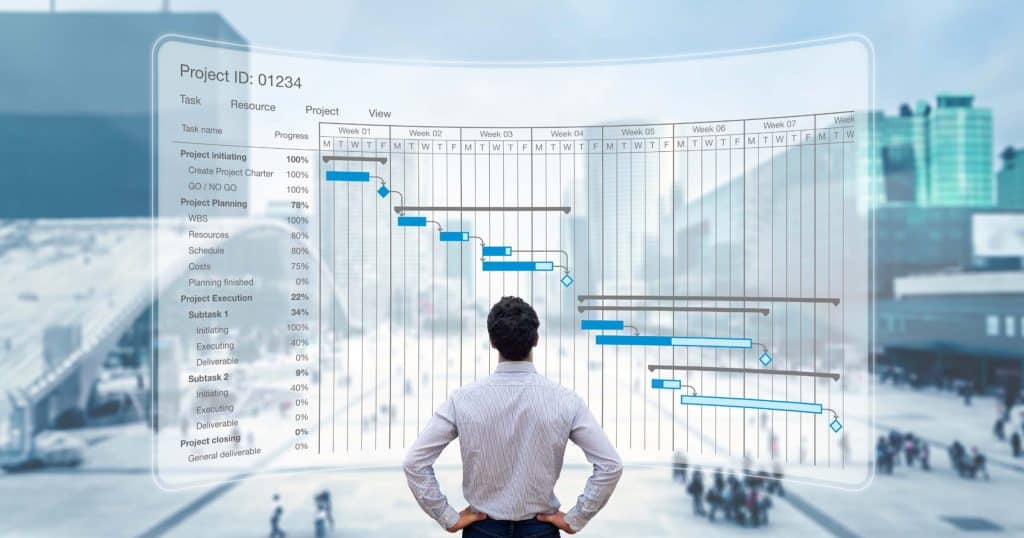The performance of a project is defined by meeting the stated objectives and completing the project is approved cost and schedule. How is the performance monitored during the execution phase?
Project performance is measured during the project execution phase by monitoring the progress. How important it is to measure the progress and what are the challenges, especially for complex EPC projects where multiple stakeholders are involved in executing the project.
Importance of Progress Measurement in EPC Projects:
Step 1: Performance Evaluation
Progress measurement provides a quantitative assessment of a project’s performance. It helps stakeholders gauge whether the project is on track, meeting milestones, and achieving objectives within the scheduled time frame.
Step 2: Timely Completion
EPC projects often have strict deadlines, and progress measurement helps monitor the project’s advancement and identify any delays or bottlenecks. By tracking progress, project managers can take proactive measures to address issues promptly and ensure timely completion.
Step 3: Resource Allocation
Progress measurement facilitates effective utilization of the project resources. By understanding the progress at various stages of the project, project managers can allocate resources optimally, ensuring that sufficient manpower, equipment, and materials are available when and where it is needed and that the idling of resources is avoided to the extent possible.
Step 4: Risk Management
Accurate progress measurement aids in identifying and mitigating risks. By monitoring progress, project managers can detect potential deviations from the plan, assess their impact, and implement appropriate risk response strategies to minimize their effect on the project’s success.
Step 5: Communication and Stakeholder Management
Progress measurement provides a reliable basis for communication among project stakeholders. It allows project teams to share accurate and up-to-date information, foster transparency, manage expectations, and build trust with clients, contractors, and other involved parties.
Watch our latest webinar on this topic!
Now Let us Examine the Challenges Faced by Project Teams in Establishing a Robust Progress Measurement.
1. Complexity and Scope:
EPC projects often involve complex engineering designs, delivery of critical and long lead equipment, large-scale construction, and multiple work packages. Measuring progress accurately across various activities and disciplines can be challenging due to the sheer complexity and scope of the project.
2. Interdependencies:
EPC projects typically have numerous interdependent activities, making it difficult to isolate and measure progress for individual tasks. Delays or disruptions in one area can have a cascading effect on other activities, leading to inaccuracies in progress measurement.
3. Subjectivity and Variability:
Progress measurement often involves subjective judgment, especially when relying on visual inspections or manual reporting. Different stakeholders may have varying interpretations of progress, leading to discrepancies and potential conflicts.
4. Data Availability and Reliability:
Gathering reliable and up-to-date progress data can be challenging, particularly in projects with multiple subcontractors or when relying on manual data collection methods. Inaccurate or incomplete data can lead to biased progress reporting and misinformed decision-making.
5. Measurement Methods and Metrics:
Choosing appropriate measurement methods and metrics for progress evaluation is crucial. However, selecting the right indicators that capture the true progress of complex construction activities can be difficult, as different metrics may be required for different project phases.
6. Integration of Information Systems:
In large-scale EPC projects, integrating information systems from various stakeholders can be a significant challenge. Incompatibility or inconsistency between different systems used for progress measurement can hinder accurate reporting and data sharing.
Addressing these challenges requires the implementation of robust project management practices, standardized progress measurement methodologies, and the utilization of technology solutions for data collection, analysis, and reporting. By overcoming these obstacles, project teams can achieve more accurate and reliable progress measurements, leading to improved project performance and successful project delivery.
Real-time progress measurements of EPC projects leverage technology to enhance data collection, analysis, and visualization. By adopting these advancements, project managers can gain deeper insights, improve decision-making, and proactively address challenges, ultimately leading to more efficient and successful project execution.
